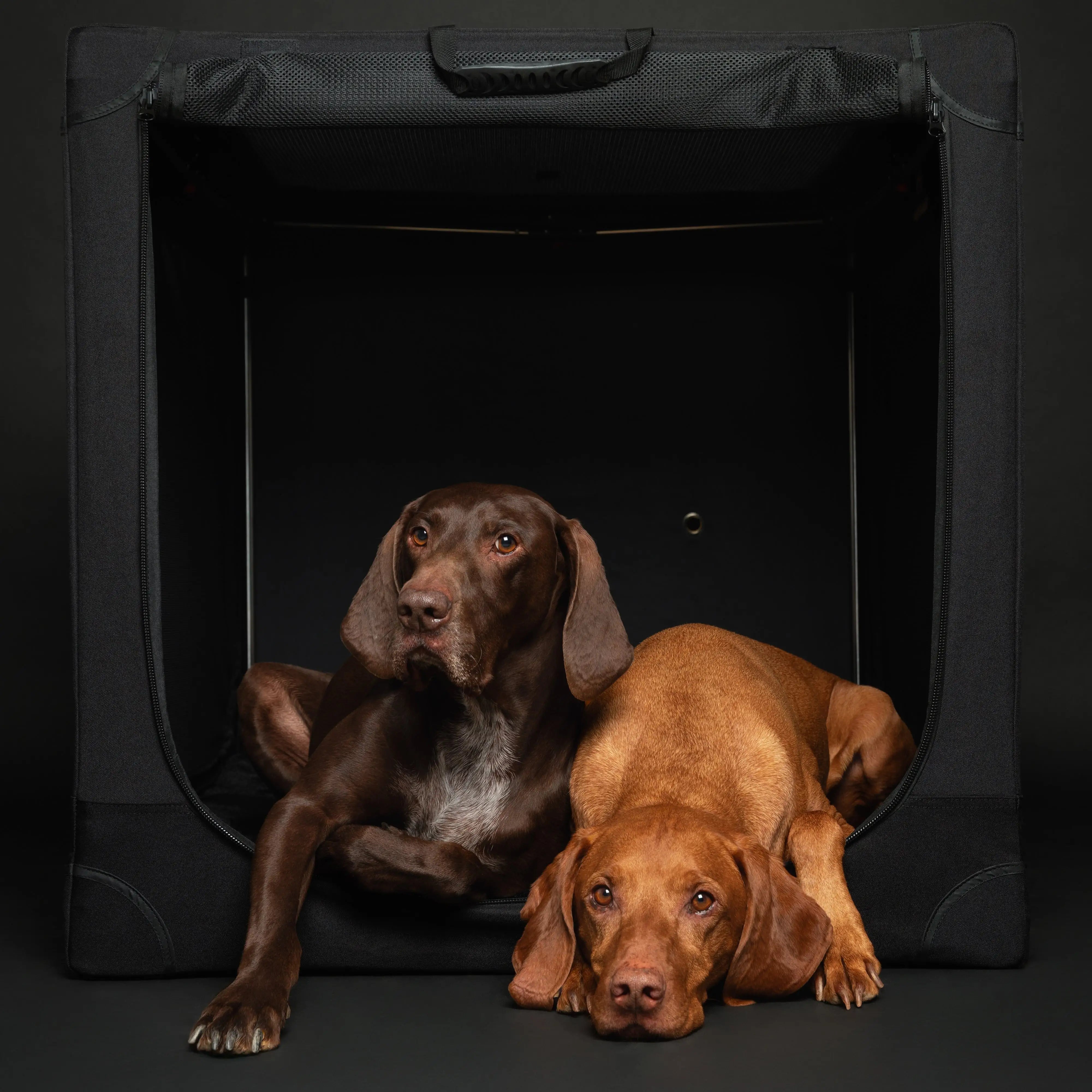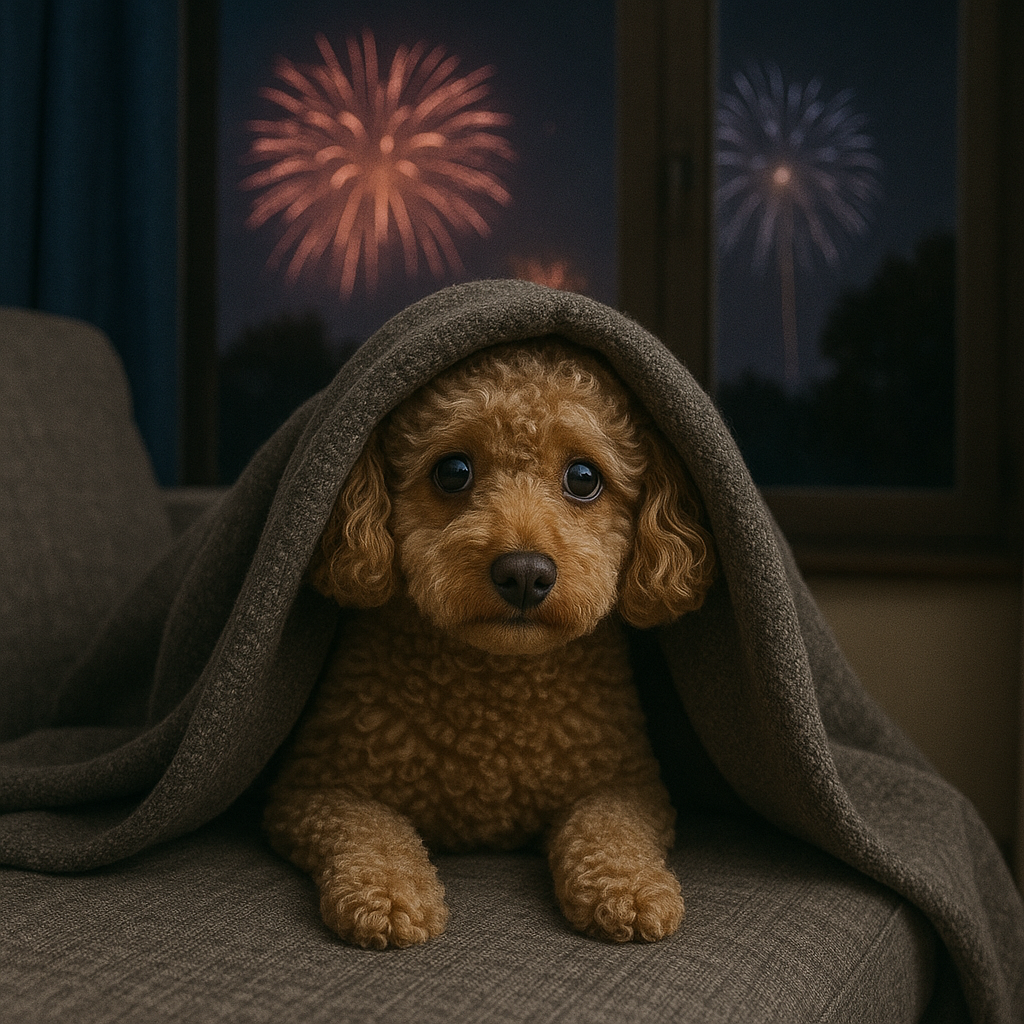
Giving Your Dog a Space to Call Home The Importance of Personal Space for Dogs
You know how sometimes you just absolutely have to retreat from all the hustle and bustle to a space of your own? Dogs need that too. Even though they are social animals, closely bonded to their human families, they still need a little personal space.
One of the best ways to provide that is to offer them a crate Not for punishment, but to give them a private den that supports your dog’s mental and physical wellbeing. Let's look more closely at the many reasons dogs need personal space and why crate training is one of the nicest things you can do for your pup.
Dogs Are Den Animals by Nature
In the wild, canines seek shelter in dens - quiet, enclosed spaces where they feel safe from predators and can rest and raise their young. This instinct has been passed down to domestic dogs. Fortunately, a crate can feel like a den. If you introduce your dog to this small, enclosed, and secure space in a positive manner, many dogs will prefer their crate when they need a break, are feeling overwhelmed, or are tired.
Benefits of Giving Your Dog a Space of Their Own
Reduces Anxiety and Overstimulation: Household chaos can overstimulate your dog. A crate is a great place where your pup can retreat, feel safe, and remain calm. If introduced correctly, it will become their familiar environment where they know they won’t be disturbed.
Supports Healthy Sleep Patterns: Dogs are remarkably similar to humans in that they require restful sleep to stay healthy and happy. Crates provide that quiet environment where your dog can get that deeper, more restorative sleep.
Helps with Training and House Manners: House training can be difficult and frustrating. A crate can make the process much easier. Dogs don’t like to soil where they sleep, so a crate the right size will encourage bladder control.
Improves Safety When You’re Away: Puppies can get in big trouble if they chew on electrical cords, ingest harmful items, or get stuck in small spaces. When you’re away, at work, or sleeping, keeping your pup in a crate can keep them safely out of trouble.
Useful During Travel and Emergencies: Whether you’re heading to the vet, traveling by car, or facing an emergency evacuation, a crate-trained dog is far easier to manage. If your dog feels comfortable in a crate, they are likely to feel less stressed during hospital stays, travel, or boarding.
Making the Crate a Positive Space
To ensure that the crate becomes a positive space and not a place of punishment, it is essential to introduce the crate in an appropriate manner. Never use the crate as punishment, and follow these tips:
- Start Slowly: Let your dog explore the crate with the door open. Toss in treats or toys to build positive associations.
- Add Comfort: Include soft bedding, a favorite blanket, or a shirt with your scent.
- Create a Calm Environment: Place the crate in a quiet spot of the house, not too isolated, but away from noisy distractions.
-
Stick to a Routine: Use the crate at consistent times like bedtime or when you leave the house, so your dog begins to expect and enjoy their “me time.”
Giving your dog a space of their own isn’t about isolating them; it’s about providing a vital emotional and physical refuge. Dogs are social animals, but even the most outgoing pup can benefit from time spent in a quiet, familiar place that’s theirs alone. A crate offers this kind of sanctuary. When used correctly, it becomes more than a training tool, it becomes your dog’s comfort zone.
The key to success with a crate is your approach. With patience, positive reinforcement, and a clear understanding of your dog’s body language and comfort levels, a crate can become your dog’s favorite place in the house. It should never be a place of punishment or forced confinement, but rather a calm, welcoming retreat filled with comfort and reassurance.
Think of the crate as more than a box, it’s a bedroom, a zen den, a quiet place where your dog can exhale and feel totally at ease. With the proper introduction and continued positive experiences, your dog will view the crate not as a confinement, but as a source of comfort. And that’s a gift every dog deserves.

